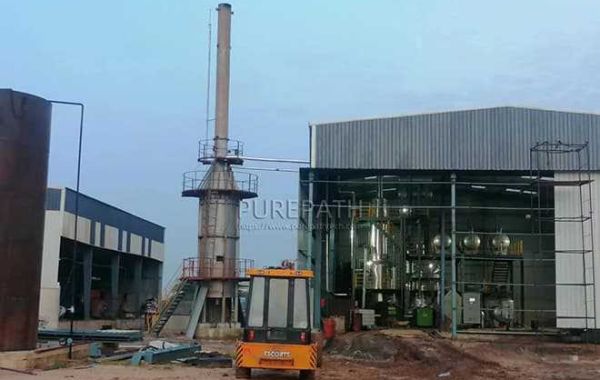A promising alternative lies in the conversion of waste oil into diesel fuel. This innovative approach offers a sustainable, cost-effective, and environmentally friendly solution for these isolated regions.
The Challenge of Off-Grid Living
Off-grid communities, typically located in remote areas, rely on diesel generators for electricity and transportation. The high cost of diesel, coupled with the logistical challenges of transporting fuel to these areas, places a heavy burden on residents. Moreover, the environmental impact of burning fossil fuels is a growing concern.
The Promise of Waste Oil Conversion
Converting waste oil into diesel fuel presents a compelling solution to these challenges. Waste oil, a byproduct of various industries and households, is often discarded, contributing to pollution. By repurposing this waste, communities can reduce their reliance on fossil fuels and generate a valuable energy source.
The conversion process involves several steps:
Collection: Waste oil is collected from various sources, including restaurants, garages, and households.
Purification: The collected oil undergoes a purification process to remove impurities and contaminants.
Transesterification: This chemical process converts waste oil into biodiesel, a cleaner-burning alternative to diesel fuel.
Blending: Biodiesel can be blended with conventional diesel to create a fuel suitable for various engines.
Benefits of Waste Oil to Diesel Conversion
Reduced Dependence on Fossil Fuels: By utilizing waste oil, communities can significantly reduce their reliance on imported diesel.
Cost Savings: Producing diesel from waste oil is generally cheaper than purchasing conventional diesel, leading to substantial cost savings for residents.
Environmental Benefits: Converting waste oil into fuel helps reduce pollution and waste disposal problems. Biodiesel is also a cleaner-burning fuel, emitting fewer harmful pollutants.
Community Empowerment: The process can create local jobs and economic opportunities, empowering communities to become more self-sufficient.
Challenges and Considerations
While the potential benefits are significant, there are challenges to overcome. The conversion process requires specialized equipment and technical expertise. Additionally, the quality of the waste oil can vary, affecting the efficiency of the conversion process. Furthermore, government policies and regulations related to waste oil management and biodiesel production need to be supportive.
Conclusion
Converting waste oil into diesel fuel offers a promising pathway to energy sustainability for off-grid communities. By addressing the challenges and leveraging the potential benefits, this approach can contribute to a cleaner, more resilient, and economically viable future for these isolated regions.







